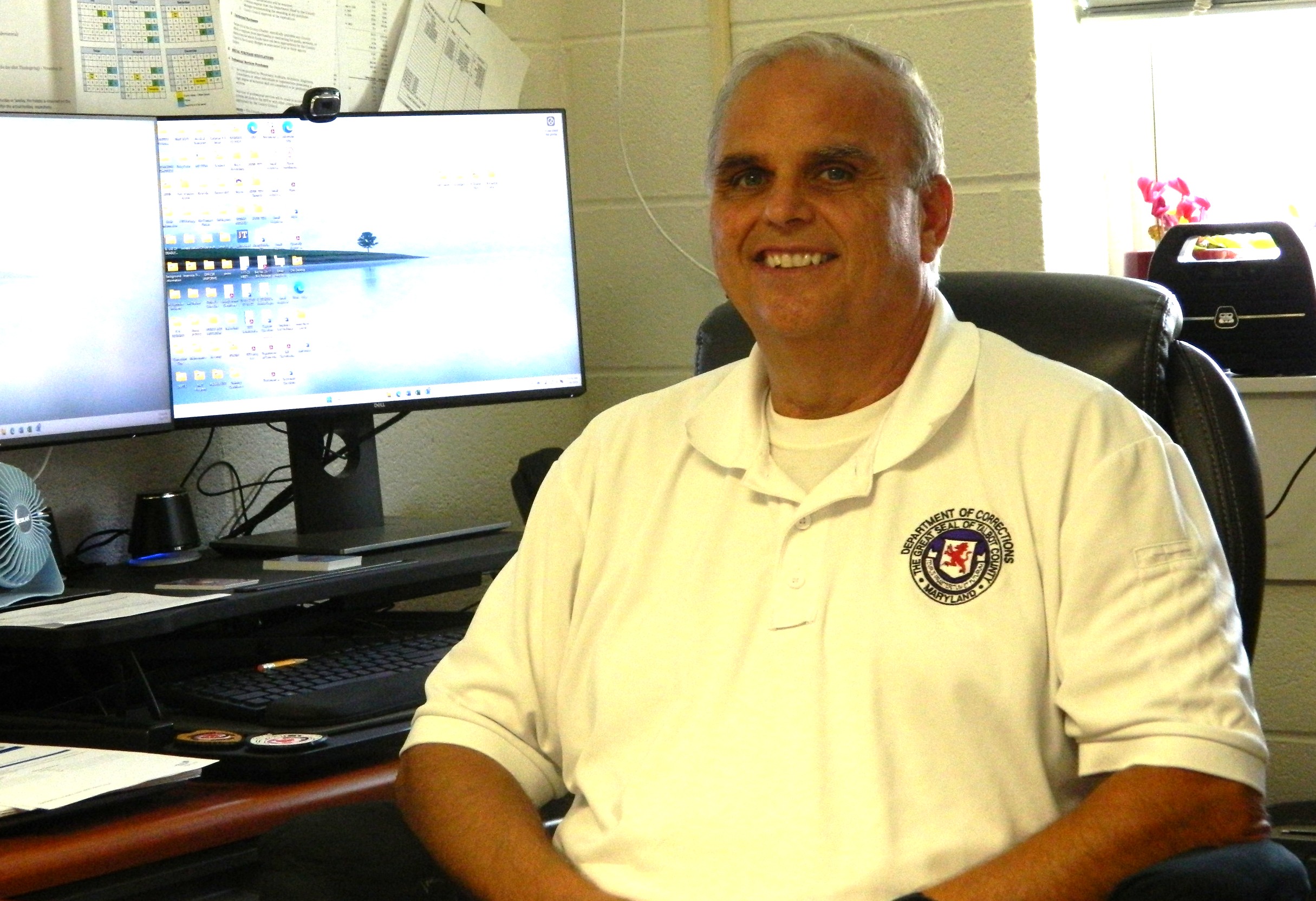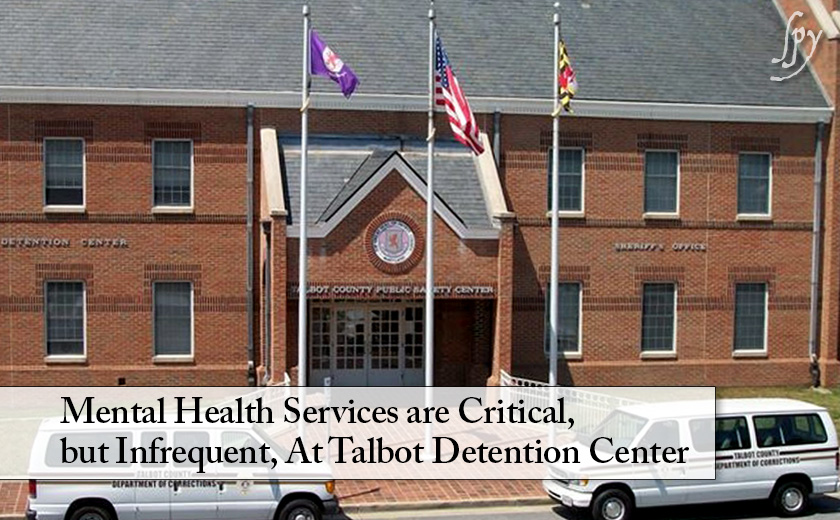Talbot County Director of Corrections Joe Hughes and his staff at the County Detention Center all agree that Mental Health Coordinator Bill Rhodes makes a critical contribution to helping troubled inmates navigate their incarceration; they just don’t see enough of him.
Rhodes, the center’s primary state-licensed clinical professional counselor, is responsible for assessing new arrivals, planning treatment, and referring patients to the resident psychiatrist as part of a multidisciplinary medical team.
As a specialist in psychological issues, he also provides correction officers with valuable advice on dealing with the rotating incarcerated population and identifies specific problems associated with certain detainees they should watch out for.
A contractor with the institutional medical service provider Wellpath, Rhodes has 17 years of experience on the Mid-Shore. He is a busy man, splitting his time between the Talbot and Dorchester facilities, but spending only 14 hours a week at the Talbot center under the current agreement.
But if Talbot County had full-time mental health services supported by a part-time administrative case manager, they could help detainees
better navigate the judicial system and have higher odds of reclaiming their lives after release, Hughes told The Spy.

Talbot Director of Corrections Joe Hughes says the Detention Center needs full-time mental health services.
“The fourteen hours of mental health support per week just aren’t enough to meet the need,” he said.
The result is a system where inmates with less severe issues are often underserved, and many are released without any treatment plan in place, and return because they lose a continuum of care and stop taking their medications. On average, 45 percent of detainees are back for one reason or another within three years.
Ahead of the next county budget cycle, Hughes plans to request additional hours to address this gap, a move he says will be essential to breaking the revolving door of incarceration and aligning services with those at the sister facility in Dorchester.
“It’s difficult when you are trying to manage more than 30 people at once, when roughly a third of them are acutely ill,” Rhodes said. Patients may be off their medication and disruptive, angry, and violent at being incarcerated, or depressed and suicidal.
“You name a disorder, and we’ve seen it here. They run the gamut,” he said. “When folks come in here, for one reason or another, they are not in a good way.”
Rhodes spends lots of time on paperwork. Processing the intakes, initial assessments, planning, and referrals obliges him to prioritize severe cases, leaving others waiting. “A lot of work that I do now takes away from critical face-to-face contact” with detainees who have requested mental health services.
A case manager to handle administrative tasks like setting up appointments and residential applications, a therapist, a peer support specialist, or some combination thereof, could all help Rhodes provide a higher level of service.
A full-time program would also give him more time to work on training the facility’s cadre of corrections officers, who, of course, are on the front lines in maintaining order among the volatile detainee population.
Corrections Sgt. Thomas Waite, a seven-year veteran at the facility, said Rhodes plays a valuable role in helping him and his colleagues understand what to be aware of and how to handle some mentally troubled detainees.
“Bill’s work is essential for all of us,” Waite said. “His advice helps us manage certain inmates when he’s not here. We all learn a lot from him. He’s the glue that holds us together.”
Corrections officers, likewise, are valuable resources, briefing Rhodes on patterns of behavior they have observed over time. “They’re like my eyes and ears,” he said. “I can’t do my job without them, and they can’t do their job as well without me.”
This symbiotic relationship, where officers provide Rhodes real-time updates on inmates’ conditions, and he in turn coaches them on how to respond to specific situations, particularly in cases of self-harm or suicidal behavior, can only be strengthened by full-time mental health coverage.
The detention center’s challenges are compounded by systemic issues, including a statewide shortage of state hospital beds for inmates deemed incompetent to stand trial. Even if a judge orders a detainee transfer within ten days, it can be months before a bed in a state facility becomes available, Hughes said.
Severely ill inmates who require intensive oversight take up precious hours that would otherwise be used to cover more inmates in need of the services.
“We’re doing the best with what we have, but we’ll be asking for more hours to serve the community better and reduce recidivism,” Hughes said. “Mental health and addiction are the core issues, and without enough resources, we’re stuck in a cycle.”




Write a Letter to the Editor on this Article
We encourage readers to offer their point of view on this article by submitting the following form. Editing is sometimes necessary and is done at the discretion of the editorial staff.